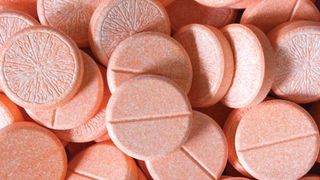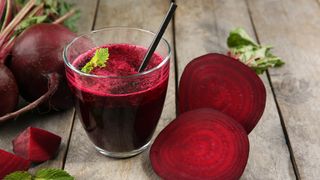The Best Supplements To Consider Taking (And The Ones To Avoid)
Discover which supplements may make a difference and which aren’t worth your time

If you’re serious about making changes to the state of your health or the shape of your body, there’s no doubt the internet will have read your mind (or at least your search history) and will be showing you adverts for all manner of supplements. Chances are you’ll have seen so many miracle claims you may wonder why the UK is not a nation of demigods by now – or if, maybe, the effects are overstated.
To help cut through the hyperbole to the real truth about supplements, we’ve spoken to a range of experts – including dietitians, doctors and sports nutritionists – to find out which products can be useful, which probably aren’t worth it, and how best to use them if you are taking supplements.
See related
You can trust Coach
The Best Supplements
You’ll find more detail on each of the supplements below by following the links to our in-depth articles, but here’s a run-down of those that have some worthwhile features according to our experts and what you can expect from them.
Vitamin D
It’s essential for bone and muscle health among other things, and the best way to get it is by exposure to sunlight. However, government advice in the UK is that all adults take a 10microgram vitamin D supplement daily between October and March, because that’s when the lack of sunshine at this latitude makes it hard to get enough vitamin D simply by heading outside. During the COVID-19 pandemic, the advice has been adjusted to recommend taking a supplement all year round, because many people are spending less time outside. Read more about Vitamin D
Protein supplements
The most common supplement you’ll find in gym bags, protein helps your muscles to repair and rebuild after a hard workout. Generally, whey protein is used to help people hit a protein target of 1.4-2g protein per kilogram of bodyweight per day when training hard or looking to build muscle, though if you can hit this goal through your diet that’s the better bet owing to the additional nutrients you get from food protein sources. Another type of protein supplement is casein, and there are also vegan alternatives that use plant protein sources like peas, brown rice and soya. Read more about protein supplements
Creatine
Creatine is used by your muscles to produce energy, and helps you to exercise for longer and recover faster. Creatine monohydrate is the cheapest form of creatine supplement you can buy and there’s no need to opt for anything pricier in terms of effectiveness. Be aware, however, that creatine has been shown to work only for some people in studies, with some suggesting it’s effective for just 50% of people. Read more about creatine supplements
Beetroot juice

This source of dietary nitrates can reduce the oxygen cost of running, or other endurance activities. There’s also some evidence that it can improve power and performance at speed as well, so it’s also become popular with professional football and rugby players. Concentrated shots are now available so you don’t have to chug full glasses of the stuff. Read more about beetroot juice
Caffeine
It will come as no surprise to those who can’t get through the day without drinking a couple of coffees that caffeine can reduce your perception of fatigue. This makes it a useful supplement for sportspeople, whether you’re looking to blast through a short workout and need a pick-me-up beforehand, or are trying to hold on at the end of a long endurance event like a marathon. For sporting performance the suggested dose of caffeine is 3mg per kilo of body mass, and you should take it 30 to 45 minutes before you want the effect to kick in. Not everyone reacts in the same way to caffeine, however: for some people it can cause jitters or GI distress, so it’s one to introduce carefully. Read more about how footballers use caffeine
Carbohydrates
Carbs are your body’s main source of fuel when working hard, so ensuring you have enough of them is vital for performing at your best. If your exercise is to last less than 90 minutes you can usually get by with the carbs stored in your body, especially if you carb-load beforehand, but during longer bouts of activity it’s worth topping up your carb levels as you go. There are many carb supplements that can help you achieve this, such as running gels, energy bars and sports drinks, and it’s worth experimenting with different types to find ones that you like and that don’t upset your stomach. Read more about running supplements for marathoners
Electrolytes
Water is naturally a key ally in your efforts to stay hydrated, but electrolytes also play a vital role, especially when exercising hard because you will lose a lot of sodium in your sweat. If you’re exercising for over an hour, especially in hot environments, it can be worth using an electrolyte supplement to top up your sodium levels in particular. Many sports products like energy drinks and gels come with added electrolytes, or you can get a tablet or sachet to make a particularly electrolyte-rich drink. Read more about electrolytes
Collagen
One of the rising stars of the supplement world, collagen is popping up in all sorts of products with the promise of maintaining your bone, joint and skin health, as well as managing pain and stiffness associated with osteoarthritis. When we spoke to dietitian Linia Patel she said the early research into the benefits of collagen supplements is encouraging, but you can also get what you need from your diet. Read more about collagen
Fat Burners
Fat burners are supplements designed to boost your metabolism and so reduce fat absorption, pushing your body to burn fat as fuel rather than storing it away. While they do the job they claim to, in general weight management requires a more all-encompassing approach in terms of diet and exercise, and fat burners are not really designed to be used for long periods. There are many different ingredients used in fat burners to produce the desired effect, including caffeine, salts and proteins, and before you start using them you should discuss them with a healthcare professional. Read more about fat burners
Beta-Alanine
Beta-alanine is a supplement used by footballers, cyclists and other sports pros looking for marginal gains, and it can help to delay fatigue and the build-up of lactic acid during hard efforts like tough climbs on the bike or the repeated sprints of a football match. You have to load with beta-alanine to get the benefits, taking around 3-6g a day for at least four weeks. Read more about how cyclists use beta-alanine
The Ones To Avoid
BCAAs
Branched-chain amino acids, to give them their full title, play a key role in muscle growth, especially leucine. However, assuming you eat a diet high in protein then getting additional BCAAs from supplements isn’t really needed. Even if supplementation would help, BCAAs are found in whey protein powder and our expert recommended sticking with that rather than a dedicated BCAA supplement. Read more about BCAA supplements
Multivitamins
One of the most common supplements but one that’s just not worth it according to the dietitian we consulted. You certainly can’t make up for a lack of fruit and veg in your diet with a multivitamin because, for one, you’ll miss out on all of the dietary fibre that’s essential for good gut health. Read more about multivitamins
Omega 3 fish oil
Commonly taken to boost people’s omega 3 fatty acid intake, fish oil was long thought to help protect your cardiovascular health. However, a 2018 Cochrane review of 79 studies found that omega 3 supplements like fish oil actually had little or no effect on cardiovascular health. There are some instances in which a medical professional may direct you to take omega 3 supplements, but if you’ve received no specific advice from a reliable source, you might as well save your money. Read more about omega 3 fish oil supplements
Get the Coach Newsletter
Sign up for workout ideas, training advice, reviews of the latest gear and more.

Nick Harris-Fry is a journalist who has been covering health and fitness since 2015. Nick is an avid runner, covering 70-110km a week, which gives him ample opportunity to test a wide range of running shoes and running gear. He is also the chief tester for fitness trackers and running watches, treadmills and exercise bikes, and workout headphones.
